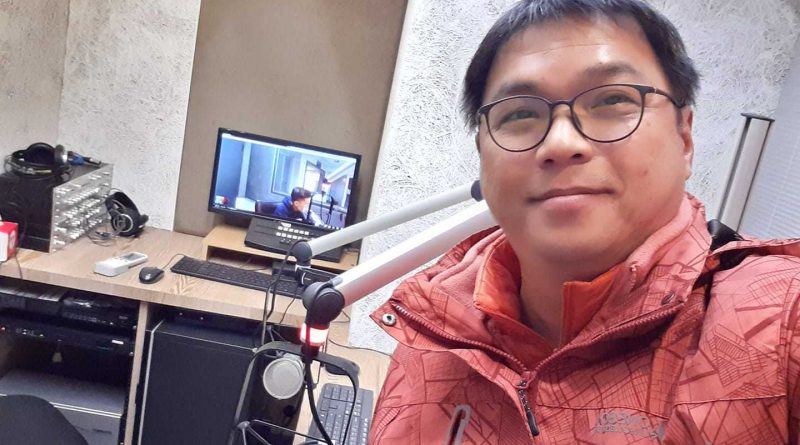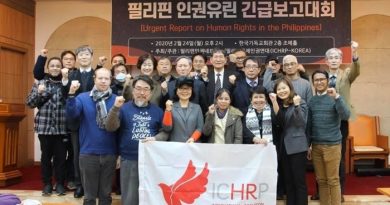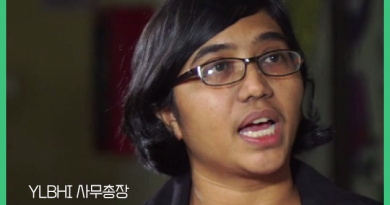Taiwan 2: Society of Diversity
Interview with Mr. Yi-hsiang
* Mr. Shih Yi-hsiang is the Secretary-General of Taiwan Association for Human Rights.
1. Can you say a little bit about the history and culture of the island of Taiwan (maybe from Dutch Formosa to Japanese rule) – its people, languages, religions and struggle?
The indigenous peoples that have inhabited the island of Taiwan since prehistoric times belong to the peoples of Austronesian languages. If we further classify the ethnic groups by their languages, family lineages, and cultural practices among relevant historical evidence, we could further divide the so-called ‘indigenous people’ into different groups. Insofar, the official recognition of the indigenous population is about 570,000, accounting for 2.4% of Taiwan’s total population. According to Mr. Shi Ming’s book, “A 400-year History of the Taiwanese People”, Taiwan has been colonized by several “foreign conquerors” over the 400 years of the island’s history, including the migration of Han Chinese fishermen and pirates from mainland China in the early 12th century; the occupation of Taiwan by the Netherlands and Spain in the early 17th century; the feudal colonization of Taiwan by the Zheng dynasty and the Qing dynasty from the mid-17th century onwards; the short-lived “Taiwan Republic” in 1895, followed by the half-century-long imperialist regime of Japan; and the authoritarian rule of the Chiang family of the Kuomintang who retreated here from China after World War II. Taiwan was lifted from martial law on 15 July, 1987, and various popular and social movements sprouted up before the lifting of martial law and began to move towards democratization. The first direct Presidential election began in 1996, and the first transition of the party regime through the election was in 2000. But both of the critical moments of democratization did not immediately address the social engineering of transitional justice, and they missed the timing to hold to account those who violated human rights under the previous authoritarian regime. Taiwan is a country with multiple cultures, languages, and religions that are evolving along with history, regime change, and subsequent immigrant and migrant worker policies. Despite the mainstream Han Chinese ethnic groups such as Min Nan, Hakka, and indigenous groups, Southeast Asian marriage immigrants, and migrant workers chiefly from Indonesia, Vietnam, the Philippines, and Thailand, these are the major ethnicities that constitute the population in Taiwan.
2. How is the situation of the Taiwan aborigines’ human rights condition?
Since the Japanese colonial rule, through the authoritarian rule of the Kuomintang government to the current Democratic Progressive Party (DPP) government, Taiwan’s indigenous peoples have invariably been oppressed under the rule of successive regimes, all of whom have inflicted significant infringements and negative impacts on the traditional territory, land, language and cultural practices. Even though the incumbent President Tsai, Ying-Wen, for the first time, apologized to all the indigenous people on behalf of the State, it did not heal the historical wounds of the violated human rights of the indigenous peoples and the widened inequalities between the indigenous and the Han Chinese societies. The most serious problem is that the average remaining life expectancy of all indigenous peoples is nearly ten years less than that of other citizens. Also, both government administration and private corporate development have massively occupied and invaded the traditional territory of the indigenous peoples, directly affecting their traditional living culture, rituals and hunting culture. As a result of prolonged assimilation policies and the forceful invasion of capitalism, Taiwan’s indigenous peoples are faced with a tug-of-war between the disappearance and preservation of their traditional culture, and the deep-rooted discrimination and stereotypes against the indigenous peoples that prevail among Taiwanese society.
3. What are the most serious human rights issues in the Tsai Ing-win government?
Despite the efforts of Tsai Ing-wen’s administration to defend the principalities of Taiwan’s government and to protect the nation’s health rights by successfully controlling the epidemic during the COVID-19 outbreak, as well as promoting the legalization of same-sex marriage, judicial reform, national pension reform, the Transformation Justice Project, and the establishment of the National Human Rights Commission; there are still many important human rights issues that human rights groups are facing. Firstly, President Tsai Ing-wen, who is in power on behalf of the Democratic Progressive Party (DPP), has twice carried out state executions according to the death penalty despite the fact that the DPP’s party platform still maintains the abolition of the death penalty. It did not preserve the DPP’s administrative record of the four-year-long moratorium on executions after the DPP’s first reign in 2000. Furthermore, the Assembly and Procession Act and the People’s Organizations Act are legal tools used by the government to control street and social movements in Taiwan after the implementation of the death penalty, and the DPP has stated that the law should be amended to protect the people’s right of assembly and association when it was the opposition party, but the DPP has not completed the amendment of the law since it came into power, and even used these two laws to restrict the people’s right to peaceful assembly, just as the KMT did during its rule. Thirdly, although the Tsai Ing-wen administration’s COVID-19 prevention measures were successful, many of the government’s administrative measures lacked clear legal authorization and made extensive use of unauthorized technological surveillance methods to track specific people, seriously violating the principles of democracy and the rule of law, the principle of proportionality, and infringing on people’s personal privacy. On the other hand, the Tsai Ing-wen administration is trying to promote the eID digital chip national identity card, which is not regulated by a specific law, and there are high suspicions of Chinese involvement in the companies involved in this policy, which may put the people of Taiwan’s information security at risk once this policy is implemented. Fourthly, although Tsai Ing-wen’s government has made it clear that it is willing to assist Hong Kong people seeking asylum in Taiwan, and has indeed invested resources and manpower in setting up a special office, Tsai Ing-wen’s government has consistently been slow and backward in its work on the legal system, and has been unwilling to address the Refugee Law and a clear refugee protection mechanism. Last, the Tsai Ing-wen administration, like the Ma Ying-jeou administration, has allowed the land acquisition system to cause serious violations of people’s rights to housing and livelihood in various places. Cases of forced evictions continued to occur. The trends of displacement and eviction did not see any sign of recession but continue to deteriorate the people’s well-being.
4. How about the human rights of the social minority groups like women, LGBT community and migrant workers?
The women’s rights movement in Taiwan has been very active with fruitful progress. As a result of the practices of nationalist feminism, a large number of women’s group leaders have entered the system and are promoting gender mainstreaming across different government sectors, and implementing the six gender tools (gender equality mechanism, impact assessment, empowerment, budgeting, statistics, and analysis). The gender equality movement in Taiwan has not performed badly, but the women’s labor force participation rate has hardly increased in recent years, and sexual harassment in the workplace, pregnancy discrimination, the transparency ceiling, and occupational segregation by biological gender are still far from satisfactory. Women’s domestic division of labor is still dominated by childcare and domestic work. This has been identified as the main reason why women’s labor force participation rates have not increased. On the other hand, there are over 200,000 female domestic care workers from Indonesia in Taiwan, which mainly take over long-term care work in Taiwan. However, female migrant workers are not covered by the Labour Standards Law, are not guaranteed basic wages, work long hours, while many migrant workers are unable to take holidays, and cases of sexual assault and harassment often occur because their workplace and private space are all in their employer’s home. Although same-sex marriage has been legalized in Taiwan, LGBTQI people still face institutional barriers to inter-country marriage and child-rearing. The number of foreign migrant workers in Taiwan has reached 710,000, surpassing the number of indigenous peoples and new immigrants. However, foreign migrant workers still suffer from structural and institutional discrimination. When foreign migrant workers are exploited or forced to work by their employers, or when they are offered large sums of money by their agents, they choose to lose contact or flee from the workplace, and then they become undocumented. If caught, they will be forcibly repatriated to their home country. Regardless of the type of migrant worker, it is common for their documents and passports to be withheld to restrict their free movement. Migrant workers in the fishing industry are among the most disadvantaged of all migrant workers. Within the fishing industry, the migrant workers in the Distant Water Fisheries were the most exploited as they are not protected by labor rights at all. There have been fatal incidents around exploitation of these migrant workers being tortured, forced into labor, or otherwise exploited by the agents. The blood-shedding fisheries of Taiwan are notorious on the global record.
- * Translated from Chinese to English by Ms. Hungying Chen




